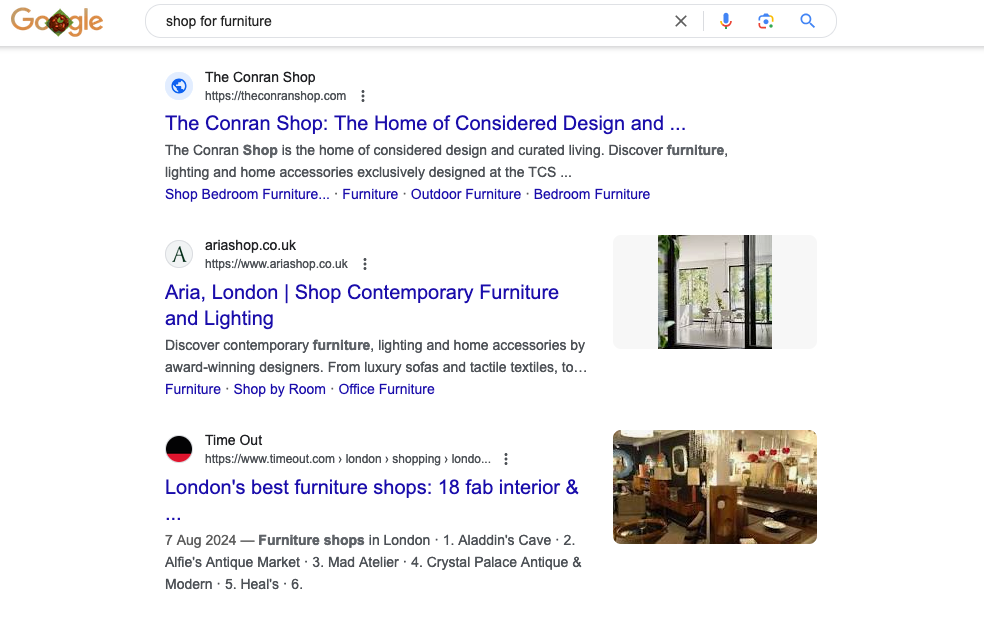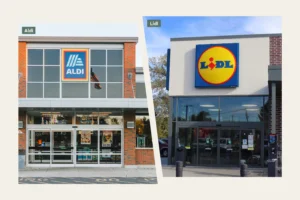Why do we need to think about the importance of having a good website? For generations, retailers have been selling all types of goods imaginable, through what we traditionally know as high street shops and department stores. These have been established for decades and most people have grown up buying their clothes, shoes, furniture, electrical goods and so much more from these kinds of outlets.
In recent years, with the onslaught of the online revolution, the way people shop has changed dramatically. The way people do everything has gone through a complete metamorphosis; with not just clothes and electrical goods being sold online but pretty much every other service we use too, such as booking holidays, health and beauty appointments, watching TV, listening to music, social interaction and even buying cars.
The result of this is that anybody selling products or some kind of service is now online and what they offer is showcased and often sold through their websites. What this means is that in every area of commerce or supply, the markets for any of these things are now pretty crowded. It’s no longer a case of setting up a physical shop in an area where there isn’t already too much competition, online shops can be anywhere, and goods quickly delivered worldwide. As for services, they are now searched through an engine such as Google and scrutinised for their positive reviews, with people willing to travel further for popular, trusted or recommended businesses.
So what does this mean?
All of this means that any business or brand offering goods or services through their website needs to firstly ensure that they are visible and come up in searches when people are looking for what they offer. This is done with what’s commonly known as SEO, or Search Engine Optimisation.
It’s widely thought that most people will usually only consider the first 3 or 4 search results when choosing one company over another and very few people will go beyond the first page. This is because we subconsciously (or consciously) think that the highest-ranking sites must be the best and most trustworthy ones. This isn’t always the case, of course, and to mitigate this kind of user action Google have recently started to introduce scrolling pages, eliminating the need to search through page 1, page 2, etc., thus encouraging people to delve further.

How can you improve your rankings?
There are many elements to consider when trying to achieve good rankings in searches. Google is generally a little un-forth-coming in sharing information on what works best, some people tend to think this is because they want to encourage people to spend money on Google Ads but there’s no real hard evidence of this. As a rule of thumb, having relevant content on your site is a good place to start.
Google seems to favour websites that seem ‘authoritative’ in their field, so having well-written content that’s relevant to your business is important. For example, if you’re selling shoes but are writing a lot of content about the weather, you’ll probably be downgraded in your ranking. Historically, adding relevant keywords to your content has been important too, so for example if you have a company that sells pet food, adding phrases in your text such as ‘natural food for dogs’ or ‘food for ageing cats’ may well help. It’s now widely thought that this method of generating SEO isn’t as effective as it once was, it certainly can’t hurt though.
Another ranking factor is how well optimised your site is. Not only does Google favour sites that load quickly, but a slow site will also be a turn-off for visitors and most likely result in them leaving and going to another. Everyone’s used to things happening instantly these days and most people won’t tolerate something that they feel is wasting their time.
Make it mobile-friendly!
It’s also important to remember that around half the people using the web will be doing so from their phones, so having a website that’s also designed to work well on mobiles is more important than ever. Your mobile version will need to be quick to load, visually appealing and use text that’s large enough for people to read easily.
One more thing that needs to be carefully considered is that Google isn’t keen on sites that aren’t looked after. By that, we mean that websites need to be regularly updated with fresh content. If Google’s bots are regularly scanning your site and seeing that nothing ever changes, this will also have a negative effect on your rankings. So even if it’s simply adding regular new content to your blog, it’s important to keep things fresh. Likewise, if you have pages on your site that have become redundant, they should be regularly removed.
What else?
So, your site is well optimised to rank for search engines, which means you’re good to go right? Well not exactly! It’s important to remember that there’s more competition online than ever before and to firstly stand out and secondly keep people on your site and engaged, a great design and user interface is essential. So, the rule of thumb is that everything’s available online from multitudes of websites and to compete, you really need to stand out!
If you want to buy your groceries, for example, you’re no longer restricted by which supermarket is closest to you as it’s so easy to shop from the comfort of your home, so supermarket chains need to ensure not only that their brand stands out over the competition when potential customers visit their websites but that they are working hard to build customer loyalty too. If you visit one of these sites and it’s visually unappealing, difficult to navigate and complicated to purchase, the likelihood is that you’ll just go to a retailer that offers a better and simpler experience.
What lessons can we learn?
Thinking back to where we started in talking about traditional methods of selling, high street retailers have long been aware that the better their shop windows look the more chance they have of attracting people inside and selling their products. Great examples of this are brands such as Liberty, Harvey Nichols, Harrods, Selfridges, Fortnum & Mason and John Lewis. These retailers figured out long ago how important their shop windows are and as a result, the profession of ‘Window Dresser’ was born, with many people making a lucrative living from being talented at this particular job.
Having a website for your business is no different, as it’s effectively the ‘shop window’ for your brand. So, your landing page should be attractive enough to engage potential customers at first glance, thus drawing them in, and the rest of your site should be suitably well designed to not only keep them on it but deliver the information you want to get across (and that they’re looking for) in the most engaging and informative way possible.
Would you like some help?
So, after reading this post, do you think your website is doing all that it could be doing to promote your brand or sell your products? If you think the answer could be ‘no’, then why not get in touch to discuss how we might be able to help you generate more business and make a bigger impact? We love designing and building impactful and engaging websites and would love to talk to you more about yours!
To find out more about our website design services, click here!





